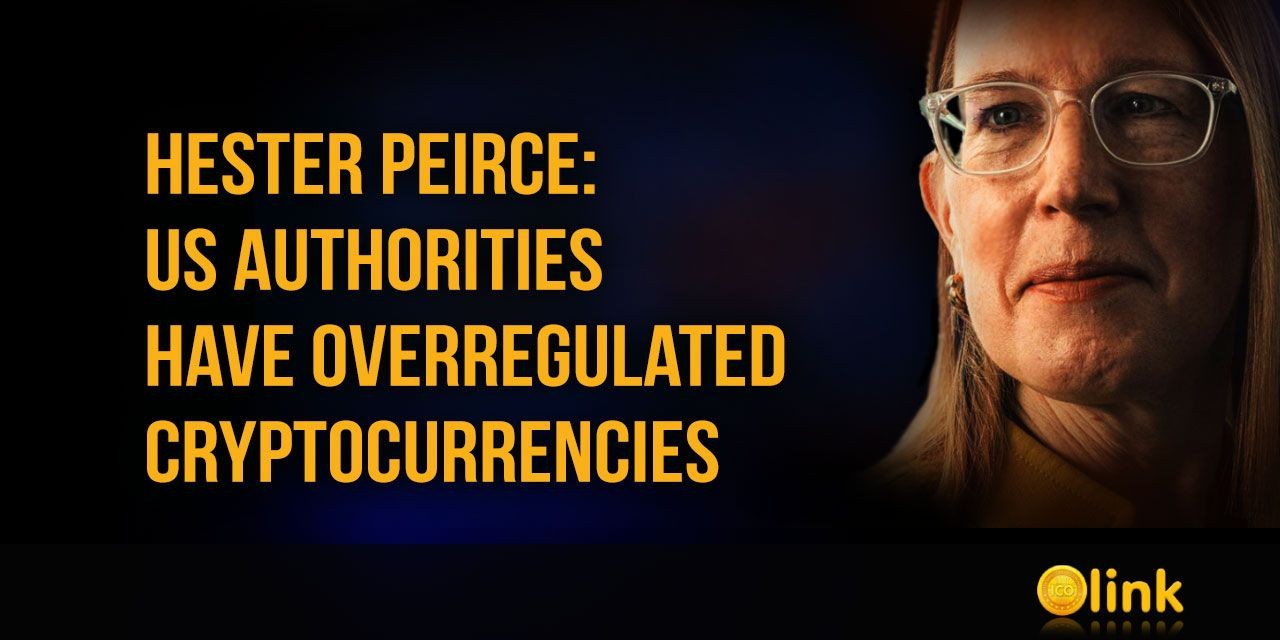Hester Peirce: US authorities have overregulated cryptocurrencies
US SEC Commissioner Hester Peirce Criticizes Regulatory Overreach on Cryptocurrencies
SEC Commissioner's Standpoint on Crypto Regulation
Hester Peirce, a long-time advocate for a balanced approach to cryptocurrency oversight, has raised serious concerns about the way US regulatory bodies, especially the SEC, are handling the rapidly evolving crypto sector. As a key figure in the SEC, Peirce has repeatedly argued that excessive regulation risks stifling innovation within the United States, putting the country at a disadvantage in a field poised to shape the future of finance. In a recent interview, she expressed her disappointment with the prolonged delay in the approval of cryptocurrency-related financial products, such as exchange-traded funds (ETFs).
Delayed Approval of Cryptocurrency ETFs: A Missed Opportunity?Since 2018, Peirce has been a vocal supporter of introducing ETFs linked to digital assets, particularly Bitcoin. She argued that a regulated path for these products could provide a safer investment environment for both individuals and institutions interested in cryptocurrency. Despite her efforts, the SEC held off on approvals for years, finally conceding in January 2024. The agency's reluctance to approve such ETFs stemmed from worries about market manipulation, yet Peirce viewed the delay as a missed chance for the U.S. to establish itself as a leader in crypto finance.
The tipping point came when a court ruling questioned the SEC's decision to deny an ETF application from Grayscale, a prominent crypto asset management firm. The court criticized the SEC's reasoning as "arbitrary and capricious," urging the agency to reassess its stance. Peirce noted that, after this ruling, the SEC found it increasingly difficult to turn down similar products, thus opening the door for future crypto ETFs.
SEC's Heightened Scrutiny Following High-Profile FailuresPeirce acknowledged that recent events in the crypto industry, such as the collapse of the FTX exchange and bankruptcies of crypto lenders like Celsius in 2022, have pressured the SEC to step up its oversight. However, Peirce argues that the agency's approach might be overly restrictive, potentially obstructing legitimate players and driving innovation out of the U.S. market. She suggested that the SEC's "tightened grip" could do more harm than good by imposing conventional market rules on a fundamentally different financial ecosystem.
In her view, while the FTX debacle and other setbacks indeed underscore the need for some degree of regulation, they don't justify casting a net so wide that it limits growth and adaptability within the crypto sector. Peirce called for a more thoughtful strategy that balances protective measures with an openness to the unique aspects of digital assets.
A Call for Nuanced Understanding in Cryptocurrency OversightPeirce urged her colleagues at the SEC to consider a more nuanced approach to regulating cryptocurrencies. Rather than forcing crypto enterprises to follow rules designed for traditional finance, she believes the SEC should invest in understanding the unique features and risks of digital assets. By doing so, Peirce argues, the SEC could collaborate more effectively with industry participants, crafting regulations that ensure both security and growth.
According to Peirce, the SEC's current approach seems out of sync with the dynamic nature of the crypto world. For instance, the agency has historically used vague language when discussing whether specific digital assets qualify as securities. Peirce pointed out that this ambiguity not only hinders companies from understanding their legal standing but also raises questions about the SEC's commitment to fostering a transparent regulatory environment.
Building a Cooperative Future for Crypto RegulationPeirce envisions a regulatory framework where the SEC works in collaboration with crypto companies rather than positioning itself as an obstacle to innovation. She argues that by cultivating an environment of cooperation and clarity, the SEC could lay the groundwork for a stable, well-regulated market without imposing excessive restrictions. According to Peirce, this balanced approach is essential for keeping the U.S. competitive in the burgeoning global digital asset market.
Hester Peirce's vision calls for a pragmatic shift in regulatory perspective—one that prioritizes growth and safety in equal measure.ocurrencies, the SEC could foster an environment that promotes innovation while safeguarding investor interests. Resolving these regulatory woes will not only benefit the crypto industry but also enhance the SEC's role as a facilitator of market integrity.






